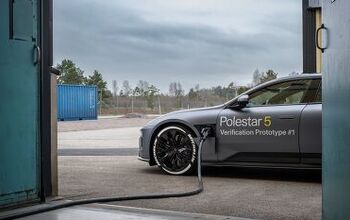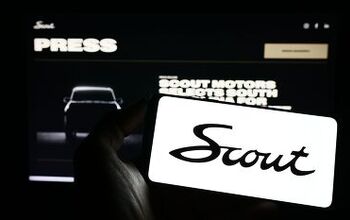Chevrolet Bolt Recall: Orion Assembly Schedules Some Downtime

Michigan’s Orion Assembly will be taking three weeks of downtime this month as General Motors continues addressing the fire recall pertaining to Chevrolet’s all-electric Bolt.
The automaker notified employees that the facility will see production idled from November 15th through December 3rd, though vehicle assembly won’t resume until the 6th. However the plant is already running on a diminished schedule so staff can assist with maximizing LG battery output and offer additional support related to the recall.
“Battery module replacements remain the priority. We will continue to adjust Orion’s production schedule moving forward to best support the recall,” GM spokesman Dan Flores told Automotive News on Thursday.
Things haven’t been similarly disharmonious for Chevy’s supplier. LG Energy Solution battery division has been struck hard by the costs of the Chevrolet Bolt EV and EUV battery recall. This tainted its profitability for Q3 and also took some of its attention away from supplying fresh energy cells for electric vehicles. There are now rumors that Orion Assembly needing a few weeks off may have been partially influenced by LG’s inability to manage a series of battery-related mishaps (which includes the Hyundai Kona) and some consumer backlash against the Bolt fires that suppressed sales.
GM’s recall includes more than 140,000 Bolt vehicles and is estimated to represent a $2-billion setback if a meaningful percentage of EVs end up requiring hardware replacements. While most of that is supposed to fall upon LG, Chevrolet won’t be getting off without contributing and has definitely received a black eye (at least as far as EVs are concerned) in terms of consumer confidence. For now, the automaker is focusing on vehicles from the 2017-2019 model years because the necessary diagnostic software for later models doesn’t exist yet.
[Image: General Motors]

A staunch consumer advocate tracking industry trends and regulation. Before joining TTAC, Matt spent a decade working for marketing and research firms based in NYC. Clients included several of the world’s largest automakers, global tire brands, and aftermarket part suppliers. Dissatisfied with the corporate world and resentful of having to wear suits everyday, he pivoted to writing about cars. Since then, that man has become an ardent supporter of the right-to-repair movement, been interviewed on the auto industry by national radio broadcasts, driven more rental cars than anyone ever should, participated in amateur rallying events, and received the requisite minimum training as sanctioned by the SCCA. Handy with a wrench, Matt grew up surrounded by Detroit auto workers and managed to get a pizza delivery job before he was legally eligible. He later found himself driving box trucks through Manhattan, guaranteeing future sympathy for actual truckers. He continues to conduct research pertaining to the automotive sector as an independent contractor and has since moved back to his native Michigan, closer to where the cars are born. A contrarian, Matt claims to prefer understeer — stating that front and all-wheel drive vehicles cater best to his driving style.
More by Matt Posky
Latest Car Reviews
Read moreLatest Product Reviews
Read moreRecent Comments
- Corey Lewis It's not competitive against others in the class, as my review discussed. https://www.thetruthaboutcars.com/cars/chevrolet/rental-review-the-2023-chevrolet-malibu-last-domestic-midsize-standing-44502760
- Turbo Is Black Magic My wife had one of these back in 06, did a ton of work to it… supercharger, full exhaust, full suspension.. it was a blast to drive even though it was still hilariously slow. Great for drive in nights, open the hatch fold the seats flat and just relax.Also this thing is a great example of how far we have come in crash safety even since just 2005… go look at these old crash tests now and I cringe at what a modern electric tank would do to this thing.
- MaintenanceCosts Whenever the topic of the xB comes up…Me: "The style is fun. The combination of the box shape and the aggressive detailing is very JDM."Wife: "Those are ghetto."Me: "They're smaller than a Corolla outside and have the space of a RAV4 inside."Wife: "Those are ghetto."Me: "They're kind of fun to drive with a stick."Wife: "Those are ghetto."It's one of a few cars (including its fellow box, the Ford Flex) on which we will just never see eye to eye.
- Oberkanone The alternative is a more expensive SUV. Yes, it will be missed.
- Ajla I did like this one.


































Comments
Join the conversation
Battery manufacturing defects are a huge potential liability for any EV / battery manufacturer. GM / LG got bit this time, but it could happen to anyone. You have a huge store of energy separated by a few microns of separator, integrated into a sealed component that costs $10K to $15K to manufacture. The cost of these recalls will be ultimately be born by all EV buyers.
Ha someone at work a few weeks ago was all excited to tell me about the battery recall on my little Chevy. Sorry Volt, not Bolt....LOL. Honestly if that battery pack gives me any trouble before it turns 15 years old I'll be a little disappointed. I figure it will outlast the rest of the car.